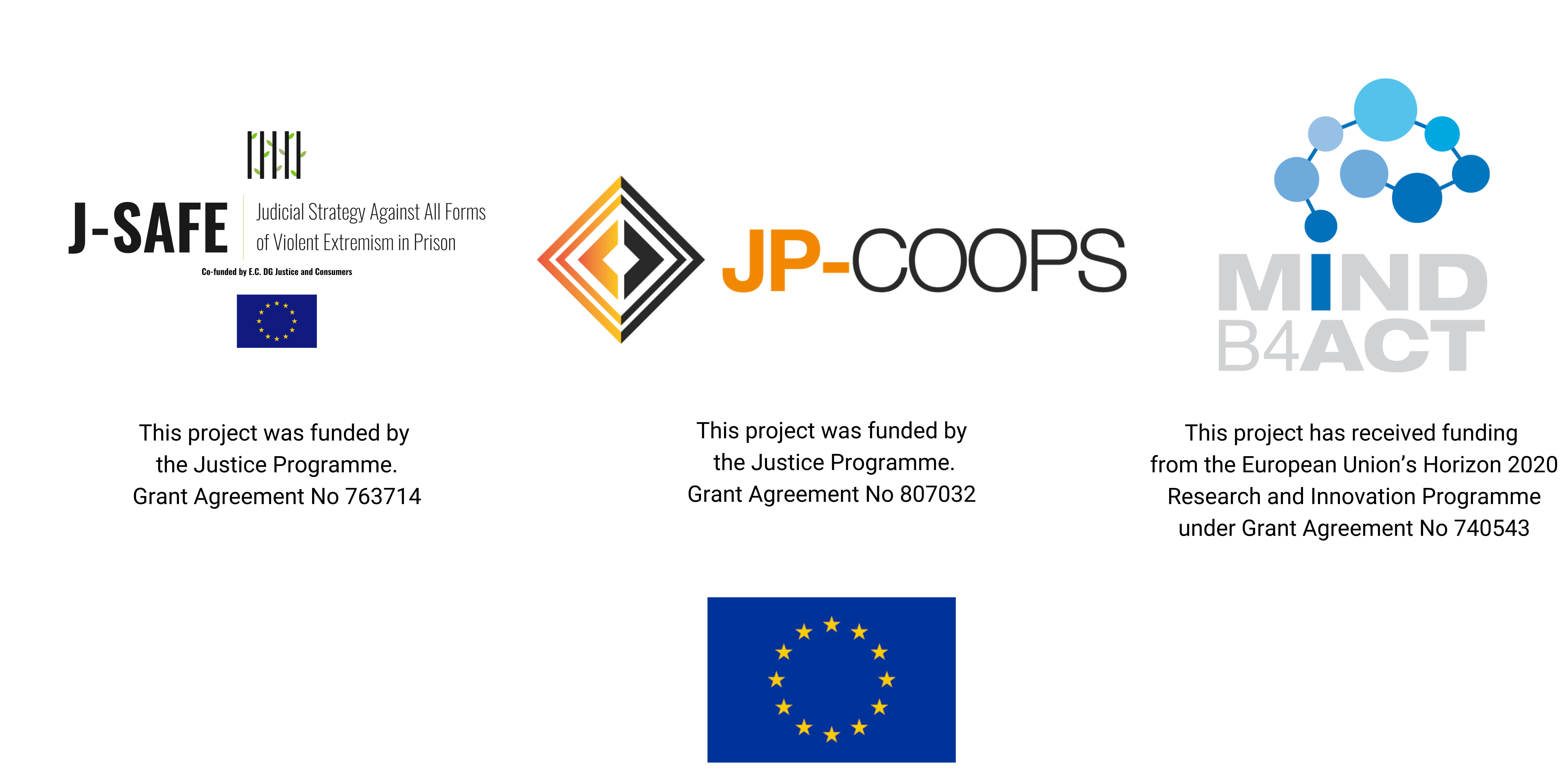
Radicalisation as a Relational Phenomenon and Radicalization in Prison
Objective:
To understand the complexity of radical phenomena through a multi-disciplinary approach at EU-level.
To develop advanced and specialized competences and abilities for LEAs, judges, prosecutors, Intel Agencies. Lawyers and vetted NGOs working in CT/CVE to identify different types of information within radical mechanisms, classify and transmit it within the procedural justice framework at MS and EU levels as part of the counter-radicalization measures.
Specific objectives:
- To develop skills of public and private first-line practitioners to recognize radical dynamics and assess behaviours indicating potential escalations within the society-at-large;
- To improve critical knowledge on the mainstreaming radicalization theories and their relation with terrorism and other forms of crime.
- To improve know-how, competences and abilities of different LEAs, prison and justice operators to observe the emergence of radical dynamics within prisons and in different high-risk contexts;
- To strengthen the role of the security stakeholders in their specific areas of interventions (concept of attributions), while reinforcing multiagency and public-private cooperation;
- To prevent new emerging threats through an appropriate management of classified and non-classified security and non-security information, in line with the national and European legislations in force, in compliance with the existing procedural rights (Stockholm’s Roadmap), EU directives and privacy regulations.
- Učitel: Sergio Bianchi

Legal Aspects of Preventive Procedures and Agency Attributions – Data Management Plan
Objective
To differentiate procedures, their applicability, and agency attributions.
Specific Objectives
To develop specific knowledge and skills on the legal preventive measures in their interaction with security measures, procedural rights, and coherence with the national and EU legislation.
- Učitel: Achille Campagna
- Učitel: Joe Cannataci
- Učitel: Aitana Radu

Basics of Digital Forensics for the Prevention of Radicalization and Prosecution of Terrorism
Objective
Specific Objectives
To improve know-how, competencies, and abilities of different LEAs, prison, and justice operators to integrate digital and cyber data into the mechanisms of observation of radicalization as part of new preventive and investigative models.
- Učitel: Emanuele Marcozzi
- Učitel: Guido Villa

Early Intervention and Awareness at Local Level
Objective
To sensibilise first-line practitioners at the local level on the phenomenon of radicalisation.
Specific Objectives
To improve know-how, competencies, and abilities of operators to understand the phenomenon of radicalization; improve their capabilities in early detection; train operators on multi-agency approach.
Training Content
- Polarization in urban areas.
- Violent radicalization processes in urban areas. How to detect and intervene with them. Case analysis and debate around the film “The young Ahmed” (2019).
- Practical case on the management of radicalisation and cultural diversity in the city of Madrid (Spain).
- Učitel: Manuel Moyano Pacheco

Penal Mediation and Alternative Measures to Detention – Violent Radicalization: a Restorative Justice Approach
Objective
To develop knowledge on the new models of existing strategies applied in several EU countries in case of radicalization, with a specific focus on the transition from the prison to the external life.
Specific Objectives
To improve know-how, competencies, and abilities of different public and private prison and justice operators to use different tools of reparative justices; adapt models of penal and cultural mediations to different types of inmates, depending from their status; Analyse different transitional mechanisms in place in diverse EU prison and probation systems.
Training Content
- Restorative Justice and mediation, a brief introduction;
- Legal basis and the subjects of RJ;
- Radicalized cosmologies;
- Models of intervention: mediation, community conferencing and community victim impact panel;
- Victims, society, and jail.
- Učitel: Stefano Cesana
- Učitel: Beatrice Maccarini

Radicalisation in Schools and Online
Objective
To develop knowledge of youth radicalization and first prevention tools.
Specific Objectives
To improve know-how, competencies, and abilities of school staff and local police in preventing violent radicalization in school and eventually address cases; improve teachers and school staff capability to raise students’ awareness of radicalization.
Training Content
- Facts & figures on Islamist radicalization in European Countries.
- Prevention: What is prevention? What forms of prevention exist? Responsibilities, limits, and potentials of schools in prevention work?
- Islamist radicalization in youth: a process and expression of a psychosocial crisis in adolescents (process model of radicalization).
- What can schools do?
- A program proposal: the NETWAVE / NETWASS approach.
- What your school can do?
- Učitel: matthias schreiber

Objective
To develop knowledge on the psychology of radicalisation for proactive prevention.
Specific Objectives
It is not enough to study and describe the radicalization process for proactive prevention, it is necessary to take into account its psychological explanation. This module aims to further enfold the psychology of radicalisation, by focusing on the radicalisation spaces, indicators of radicalisation, psychology of violent radicalisation, and the discourse on deradicalisation.
TEACHER: Jose Postigo

